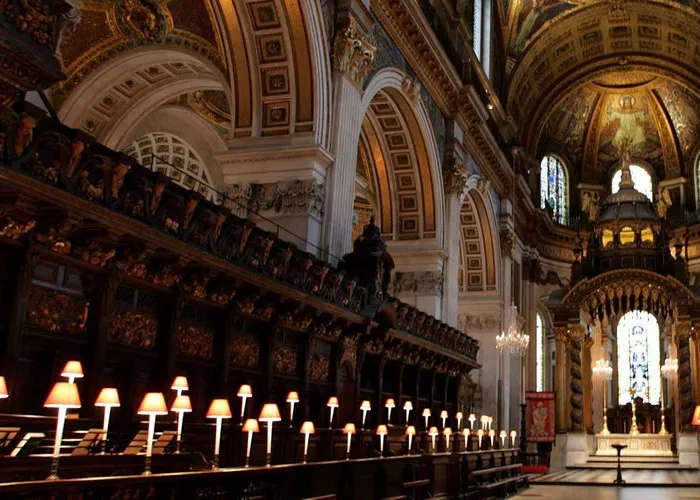December 2 has been a significant date in British history, marked by various events that have shaped the nation’s political, cultural, and social landscape. This article explores notable occurrences on this date throughout history, providing a detailed account of each event and its implications.
What Happened on December 2 in British History?
The Opening of St. Paul’s Cathedral (1697)
On December 2, 1697, Sir Christopher Wren’s St. Paul’s Cathedral was officially opened in London. This iconic structure replaced the original cathedral that had been severely damaged during the Great Fire of London in 1666. The fire devastated much of the city and highlighted the need for a new cathedral to serve as a spiritual and architectural centerpiece for London.The construction of the new St. Paul’s Cathedral took 33 years and was completed under the reign of five different monarchs. Wren’s design was innovative, incorporating a large dome that became a defining feature of the London skyline. The cathedral not only served as a place of worship but also became a symbol of resilience for Londoners following the fire. Today, it stands as one of the most important examples of English Baroque architecture and is recognized worldwide for its grandeur and historical significance.
The Birth of Joseph Gayetty and the Patent for Toilet Paper (1891)
On December 2, 1891, Joseph Gayetty was granted a patent for toilet paper rolls in the United States. Although this event occurred outside Britain, it had significant implications for British society as well. Gayetty’s invention revolutionized personal hygiene practices and became widely adopted in households across England.Before this invention, people used various materials for personal hygiene, including leaves, corn cobs, and newspapers. Gayetty’s toilet paper was marketed as “Gayetty’s Medicated Paper,” which claimed to be beneficial for health. This innovation not only changed bathroom habits but also reflected broader changes in consumer culture during the late Victorian era in Britain.
The Monroe Doctrine (1823)
While primarily an American policy, the Monroe Doctrine introduced by President James Monroe on December 2, 1823, had significant implications for British interests in the Americas. The doctrine asserted that any European intervention in the affairs of the Americas would be viewed as an act of aggression requiring U.S. intervention.For Britain, which had extensive colonial interests in the Caribbean and South America, this doctrine posed a challenge to its influence in the region. It signaled a shift towards American dominance in Western Hemisphere politics and prompted Britain to reconsider its diplomatic strategies concerning its colonies and former colonies in the Americas.
The Death of Georges Seurat (1891)
Georges Seurat, a renowned French painter known for pioneering the technique of pointillism, died on December 2, 1891. While Seurat was not British, his influence extended to British art movements and artists who admired his innovative approach to color and form.Seurat’s most famous work, “A Sunday Afternoon on the Island of La Grande Jatte,” exemplified his unique style and had a lasting impact on modern art. His techniques inspired British artists in the late 19th century as they explored new forms of expression through impressionism and post-impressionism.
The Good Friday Agreement (1998)
A landmark event occurred on December 2, 1998, when the Good Friday Agreement came into effect in Northern Ireland. This agreement aimed to bring an end to decades of conflict known as “The Troubles,” which involved violent clashes between nationalist/republican groups seeking unification with Ireland and unionist/loyalist groups wanting to remain part of the United Kingdom.The agreement established a devolved government in Northern Ireland and created frameworks for cooperation between Northern Ireland and both the Republic of Ireland and Great Britain. It marked a significant step towards peace and reconciliation in a region long plagued by sectarian violence. The Good Friday Agreement is often cited as one of the most successful peace processes in modern history.
The Launching of HMS Dreadnought (1906)
On December 2, 1906, HMS Dreadnought was launched by the Royal Navy. This battleship represented a revolutionary advancement in naval technology due to its all-big-gun armament and steam turbine propulsion system.HMS Dreadnought set new standards for naval warfare and rendered previous battleships obsolete almost overnight. Its launch marked the beginning of a new era in naval power that influenced naval strategies worldwide, particularly during World War I when battleship supremacy was critical.
The Establishment of BBC Radio (1922)
The British Broadcasting Corporation (BBC) began its radio service on December 2, 1922. This marked a pivotal moment in British media history as it laid the foundation for public broadcasting in Britain.The BBC aimed to inform, educate, and entertain listeners across the nation while maintaining impartiality and quality programming standards. Over time, it grew into one of the largest broadcasting organizations globally and played an essential role in shaping public opinion during critical moments such as World War II.
The Death of John Lennon (1980)
Though not directly related to December 2 itself but rather an event close to it that shaped public consciousness around that time was the assassination of John Lennon on December 8, 1980. Lennon’s death shocked not only Britain but also fans worldwide.As one-fourth of The Beatles—a band that transformed popular music—Lennon’s contributions to music and culture were profound. His activism for peace resonated with many during turbulent times in history; thus his death brought attention back to issues surrounding violence and celebrity culture.
Conclusion
December 2 has witnessed numerous events that have shaped British history across various fields including architecture, culture, politics, technology, media, and social change. Each event reflects broader trends within society at their respective times—whether it be resilience after disaster or innovation leading to societal shifts.From St. Paul’s Cathedral’s opening to significant political agreements like the Good Friday Agreement, these moments are essential chapters in understanding Britain’s past and its ongoing evolution into modernity.This exploration highlights how seemingly ordinary dates can encapsulate extraordinary changes within nations—reminding us that history is often made through incremental yet impactful events that resonate through time.
Related Topics:

